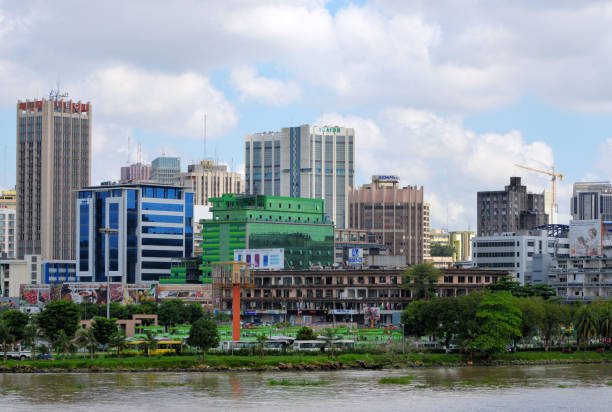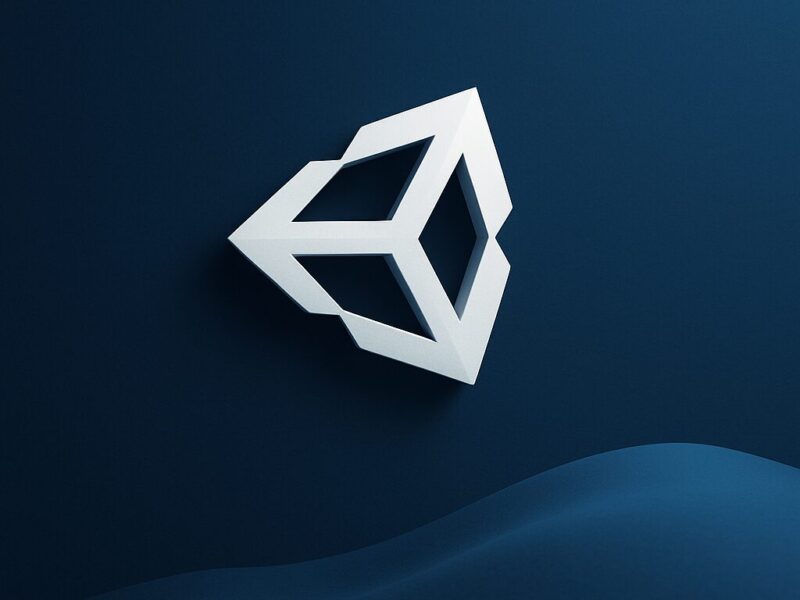Côte d’Ivoire’s Abidjan, which has been a pillar of Israeli influence in West Africa since president Houphouët-Boigny’s rule, has strengthened its alliance with Tel Aviv and companies under the influence of Stéphane Konan, the late prime minister Hamed Bakayoko’s advisor.
At the beginning of this year, French defence industry specialists were smiling, at least the ones who had left the cold greyness of the Paris region for the warmer temperatures of the Ebrié Lagoon. The Shield Africa trade fair was holding its sixth edition in Abidjan. Launched in 2013, it has become one of Africa’s major events dedicated to defence and security.
Every year, world leaders in the sector and apprentice arms dealers congregate there, amidst soldiers in fatigues. Since 2017, the show has been owned by the Groupement des Industries Françaises de la Défense et de la Sécurité Terrestres et Aéroterrestres, which is responsible for promoting the French defence industry internationally. As a result, its boss, General Patrick Colas des Francs (since replaced by General Charles Baudoin), and the French, feel a bit more at home there. French flagships are the best represented.
However, in January 2019, some men in suits from Thales were pouting. As they entered the main tent, two unusual things caught their attention: the pavilion dedicated to Belarus and the unusually high number of Israeli companies.
Although NSO Group Technologies did not plan on participating until this year, another Israeli heavyweight was already there, namely Verint System, a major specialist in listening and monitoring communication networks. In all, a dozen companies under the banner of the Israeli state were present in the aisles. “It came as a shock to us. We all know that the Israelis are formidable when it comes to the defence technology market,” says a French security specialist.
From Houphouët to Ouattara
Although the French have had a long head start in Côte d’Ivoire, Israel’s envoys have in fact been laying the groundwork for many years. As early as 1962, President Félix Houphouët-Boigny paid a visit to Jerusalem, during which time he grew closer to Prime Minister David Ben Gourion and his foreign affairs minister, Golda Meir, who was the main architect behind the Jewish state’s seduction operation abroad, especially in Africa.
The Ivorian head of state was one of the last African presidents to break diplomatic relations with Israel after the 1973 Yom Kippur War, before re-establishing them in 1985, in the wake of Zaire and Cameroon.
Faced with the September 2002 rebellion and the hostility of France’s President Jacques Chirac, Laurent Gbagbo asked for Israeli military aid. His ministry of defence ended up acquiring advanced transmission equipment and two drones from the Israel.
Africa Insight
Wake up to the essential with the Editor’s picks.Sign upAlso receive offers from The Africa ReportAlso receive offers from The Africa Report’s partners
Tel Aviv even sent 50 military advisers to Abidjan, who were in charge of phone tapping and whom the government housed on the top floor of Hotel Sofitel Ivoire. At the instigation of Benny Omer, Israel’s ambassador to Côte d’Ivoire, Tel Aviv also facilitated the arrival of military intelligence specialists and espionage experts, who were tasked with training Ivorian agents.
Although Gbagbo was pushed out during the 2010-2011 post-election crisis, Abidjan had in fact already become – along with Togo – a hub for Israeli business circles seeking investment opportunities in West Africa. Alassane Ouattara did not change this state of affairs.
In June 2012, he made an official visit to Israel and gradually set up his own networks, with help from his old friend Hubert Haddad’s connections. The head of state and the Franco-Israeli businessman know each other well, as they are neighbours in the town of Mougins, their holiday resort in the south of France.
Of mice and men
The young company, NSO, began to establish itself in the Ivorian economic capital during Ouattara’s first term in office. The company has emerged from anonymity in recent years following revelations about its Pegasus eavesdropping, as well as interception software, and gradually taken up residence in Côte d’Ivoire, where Verint, which is a few years older than it, preceded it. Founded in 2010 by electronic intelligence specialists Niv Carmi, Shalev Hulio and Omri Lavie, NSO has been gradually equipping the Ivorian defence and security services, thus making its advisers the real owners of the state’s interception and surveillance system.
The company, based in Herzliya – Israel’s Silicon Valley, north of Tel Aviv – has not only supplied equipment to the presidency, but also to the ministries of interior and defence. In fact, it has provided them with so many supplies that it has even supplanted French behemoths such as Thales on several occasions. Gaby Peretz – an Israeli military equipment broker who has been present in the sub-region since the 1980s, where he has solid contacts – regularly represents the company in Abidjan.
At the head of AD Consultants, he is active in Côte d’Ivoire, Senegal, Ghana and Gabon, both in listening technologies and in ‘traditional’ armaments. As a matter of fact, he recently sold two patrol boats built by Israel Shipyard and is now proposing to equip them with missiles that were manufactured in Israel by Rafael Advanced Defence Systems.
Given his links with NSO, Peretz could also be one of the reasons behind the ongoing reorganisation taking place within the Ivorian ministry of defence. Verint Systems is also believed to be involved, as is another important network, that of Franco-Israeli (born in Casablanca) Didier Sabag, CEO of the company Sapna Ltd. Sabag has also operated in the CAR, Benin, Guinea-Bissau and Morocco on Herzliya’s behalf.
However, in Abidjan, the latter mostly relied on Franco-Ivorian Stéphane Konan, who was close to the late Prime Minister Hamed Bakayoko and a former cybercrime expert who changed his speciality to the electronic defence business.
Konan, the man from Praïa
The name Konan is well known in African Internet circles. A recognised cybercrime expert and the son of the former minister of the Parti Démocratique de Côte d’Ivoire (PDCI) Lambert Kouassi Konan, he has been a key player in the field of security systems and computer exchanges for a long time.
After Ouattara’s arrival to power, he became Bakayoko’s advisor at the ministry of interior, which the mayor of Abobo occupied in April 2011. The two men appreciated each other and, in the mid-2010s, the technician became one of the minister’s closest collaborators when it came to issues related to communication technology.
Although Bakayoko had not yet moved from the interior ministry to the defence ministry, Konan still managed to build a strong network alongside the head of the Grande Loge de Côte d’Ivoire. He regularly collaborated with French cyber-defence specialists, notably Thales and Ercom, the historical service provider of the Direction Générale de la Sécurité Extérieure (DGSE, French intelligence).
According to a source close to the company, French industrialists in West Africa had even listed him as an occasional commercial agent at the time. However, he had other connections as well. During a stay in Libreville, he got close to the Israelis, who equipped the presidency of the Republic’s listening system (the Silam, which remained under the direction of Frenchman Colonel Boisseau).
According to a security source in Paris, Konan’s French friends were not worried at first. Then, at around 2016, Bakayoko’s adviser began to work with NSO and even some of the Israeli’s partners, such as the Indian Purple.
“When we found out about his double-dealing, that was it. Israel and NSO had already conquered Abidjan and sold their equipment to the Direction de la Surveillance du Territoire, the Direction des Services Extérieurs and the Direction des Renseignements Militaires,” says a French Shield Africa regular. The French felt that the ‘damage’ had been done, as Konan had brought Israeli interests closer to the Freemason networks of Bakayoko and Alain-Richard Donwahi (defence minister from January 2016 to July 2017, before Bakayoko succeeded him).
“We had a hard time [with] it,” says a person close to Thales. “During the 2011 post-election crisis, our special forces allowed the Israeli ambassador in Abidjan to be evacuated [Daniel Saada, who was then posted in Paris until July 2021]. So when we saw the Israelis take the markets, we felt betrayed. It’s also a question of means,” says this same source. Today, big French groups are limited by the Sapin II laws on transparency and corruption, which came into force in June 2017. These laws regulate intermediaries’ networks and issue colossal fines if transgressions are committed. However, the Israelis are not subject to these laws.
Mossad’s shadow
Abidjan’s door is now wide open to Herzliya’s actors. The relationship between the Israelis, Hambak and Donwahi has never been better. As for Konan, he still engages in privileged dialogue with Tel Aviv’s envoys. He is now the head of two companies: Picatrix, in Nigeria, and Competences LDA, which he has been managing since 2012 and which is domiciled in Cape Verde. According to a connoisseur of the Abidjan market, the majority of Israel-related business is conducted through the latter.
Konan regularly holds seminars in Praia, where he brings together his Middle Eastern contacts. “The Israelis are among the main partners of my company Compétences, which has subsidiaries in Côte d’Ivoire, Brazil and Nigeria,” he says. “But I […] feel that technology has no nationality […] so I worked with Thales last year on a project for the ministry of defence. The French are very good in some sectors, less so in others.” Konan enjoyed his time with the Israelis, so much so that he sent his son to study law in 2015 at the Hebrew University of Jerusalem, where he graduated top of his class in 2019.
In June 2021, during the latest Shield Africa trade fair, the cybercrime expert acted as an advisor to Téné Birahima Ouattara, the head of state’s brother and current defence minister. Although he was no longer the show’s curator, as was the case in 2017, he still managed to exert a lot of unquestionable influence on those around him: Israeli contacts, former members of Unit 8200 and the Israeli army’s electronic surveillance unit, which serves as a recruitment pool for NSO and Herzliya companies. Are they the armed arms of Mossad, the Israeli foreign intelligence service?
“It’s a little more complicated than that,” says an expert on the subject. “They have a form of independence and Mossad does not necessarily need them to collect information, but they are tools, especially because their employees are all ex-army.”
“In Abidjan, Israel’s ears are tuned to the Lebanese community,” says a security source. According to our information, Tel Aviv and Yamoussoukro have an unofficial agreement to share information obtained from interception systems that Israel installed and maintains.
Mossad suspects that some of the Lebanese in Côte d’Ivoire are financing Hezbollah, a fierce opponent of the Hebrew state and an ally of Iran and Palestinian Hamas. The restaurant sector – and in particular, the large restaurants in zone 4 within the commune of Marcory – as well as the banana, cocoa and rubber industries, are under surveillance, while the overall security of Abidjan airport is in the hands of Avisecure, a local subsidiary of the Israeli-Canadian group Visual Defence.
“Tel Aviv is afraid of seeing a Hezbollah financial base flourish in West Africa, so they kill two birds with one stone, whether it be in Côte d’Ivoire or Nigeria, for example through business and espionage,” says a businessman in the sector. In May 2009, the US Treasury accused Abdul Menhem Kobeïssi, a senior cleric of the Lebanese community in Abidjan, of being one of Hezbollah’s financiers and expelled him from the country.
Tel Aviv and its allies in Washington still believe that Ghadir, the association he represented, strongly backs Hezbollah. As for the Israeli intelligence services, they still view Côte d’Ivoire as the site of the organisation’s first fundraising activity in Africa. It appears that the Herzliya technicians have a bright future on the banks of the Ebrié Lagoon.


